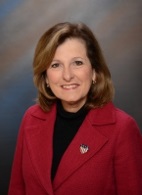
For the article "Grow your mature ASC - 5 key strategies" click here.
Q: Who have been the most important mentors to you?
Ann Geier: The person who comes to mind first is Susan Kizirian. She took me under her wing in 1998 after we met at AAASC meeting in San Diego. She was the program chair, and I asked her if she did consulting, which she did. She began working with me in my new role as COO of an ASC in South Carolina, and the next year, she asked me to be the program chair for AAASC. At first, I said that I had no idea how to do that, and she said she’d help.
I was program chair for the next eight years. I was also elected to the Board of AAASC. Her gentle nudge and guidance helped me to achieve far beyond what I ever dreamed of doing. Rob Westergard at ASCOA was another mentor. He helped me tremendously with learning the language of finance. We now teach finance together at the AORN Administrator Skills Course three times a year.
Q: Where do you see the ASC business today versus five years ago?
AG: Five years ago, the freestanding space was still growing. Then physicians started signing on as hospital employees; reimbursement continued to decrease; ASCs saw their profit margins decreasing and many today are struggling. During that time, we saw a movement towards partnerships between ASCs and hospitals. ASCs needed the hospitals, or so they thought, for contracting, etc. Hospitals needed ASCs so that they could flip them into HOPDs and get reimbursed at higher levels for the same cases ASCs had been doing for much less. Plus they wanted the "cream of the crop" cases back inside their control. We are an industry in flux today. I don’t think the dust has settled, yet.
Q: Where do you see the future of ASCs?
AG: In five years. I’m not sure we’ll recognize this industry. If ASCs are mostly HOPDs, what will happen to the efficiencies that ASCs are known for? The cost of care will be significantly higher due to the inequities of the payment system. Most risk-taking physicians are already involved in an ASC, and the younger surgeons can’t afford to buy in. What will happen when the older surgeons retire? My fear is that we will see a decrease in freestanding centers and an increase in HOPDs run like mini-hospitals.
Q: If you had a child who was going to be a physician, what advice would you give that child?
AG: I'm not sure that I would encourage a child to go into medicine today. The model seems to be hospital-employed physicians, and once employed, the physician loses all autonomy. Some controls the schedule, both in the office and in surgery. There is a bureaucracy that makes the physician a minor player in decision making.
Payers control what can be done and where, along with the hospital employer. We've all heard that you should go into a profession that you would love even if you didn't get paid for it. I don't think that is true for physicians today. I think the biggest area of regret for some physicians is that they chose the wrong field of medicine, and they feel trapped. The decision on which residency to choose gets made before a medical student has experienced a lot of the specialties. They choose a field, and after completing a long residency, and maybe working in the field for a few years, they realize that they hate it.
Twenty years ago, they could go back and apply for a different residency, and if they got in, they were good to go. That is no longer possible. Even if they wanted to go for free (no salary), that is no longer an option. The government reimburses medical training programs for its residents. There are only so many spots. If someone fills the spot, even for free, it takes up the place of a resident that the school would have funded.
Q: What's the best thing ASCs can do today?
AG: ASCs today have to remain vigilant for all things affecting the industry. They cannot bury their heads in the sand and hope that new regulations and guidelines won't affect their centers. ICD-10 will start in October. There are still many in the industry who haven’t prepared and are hoping this will be delayed again. EHRs are coming. Are they preparing now? Quality measures are already here, and the reportable list is growing. This will continue. Centers need to stay informed and if needed, seek out experts who can guide them.
